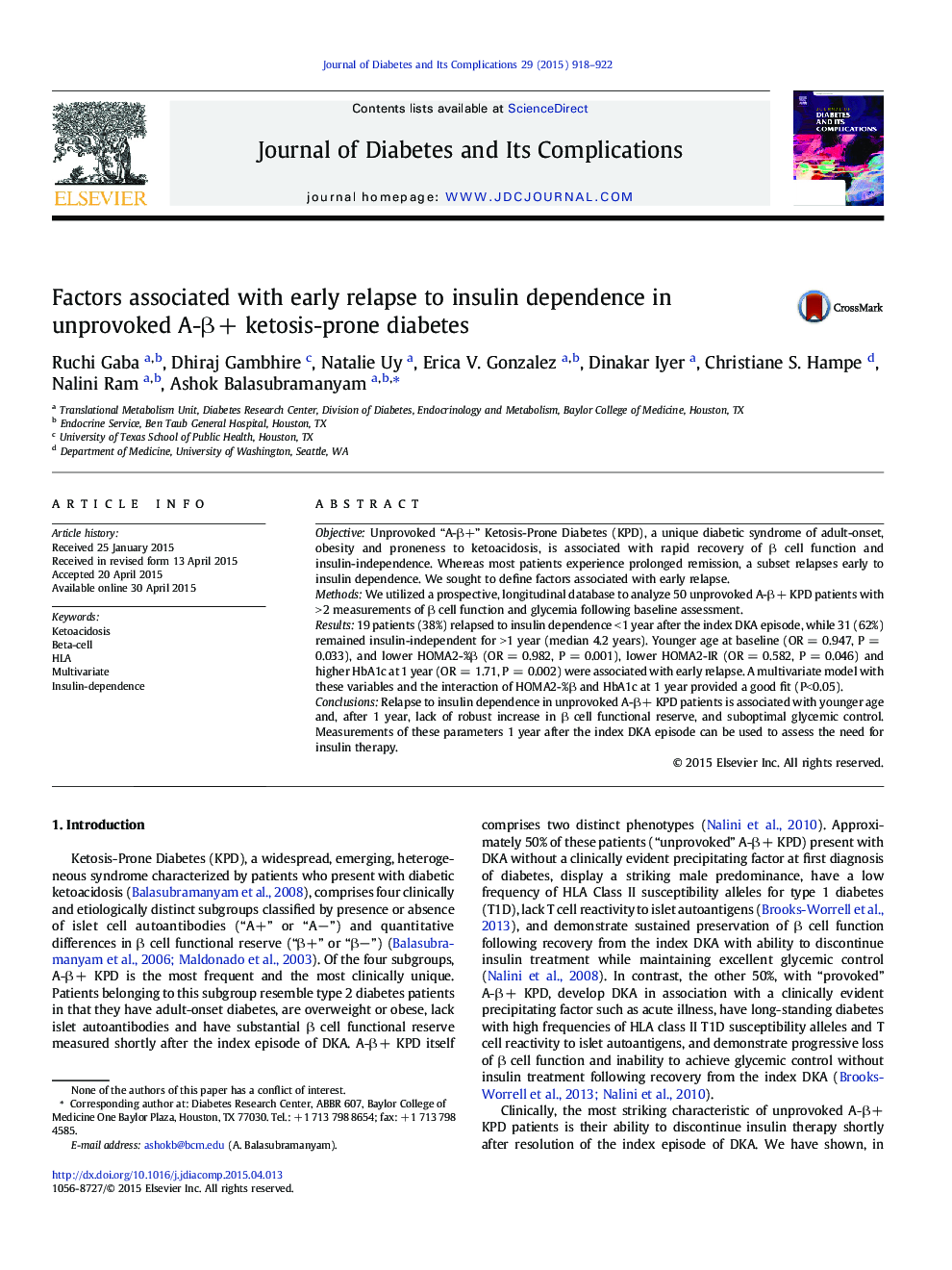| Article ID | Journal | Published Year | Pages | File Type |
|---|---|---|---|---|
| 2804123 | Journal of Diabetes and its Complications | 2015 | 5 Pages |
ObjectiveUnprovoked “A-β+” Ketosis-Prone Diabetes (KPD), a unique diabetic syndrome of adult-onset, obesity and proneness to ketoacidosis, is associated with rapid recovery of β cell function and insulin-independence. Whereas most patients experience prolonged remission, a subset relapses early to insulin dependence. We sought to define factors associated with early relapse.MethodsWe utilized a prospective, longitudinal database to analyze 50 unprovoked A-β + KPD patients with > 2 measurements of β cell function and glycemia following baseline assessment.Results19 patients (38%) relapsed to insulin dependence < 1 year after the index DKA episode, while 31 (62%) remained insulin-independent for > 1 year (median 4.2 years). Younger age at baseline (OR = 0.947, P = 0.033), and lower HOMA2-%β (OR = 0.982, P = 0.001), lower HOMA2-IR (OR = 0.582, P = 0.046) and higher HbA1c at 1 year (OR = 1.71, P = 0.002) were associated with early relapse. A multivariate model with these variables and the interaction of HOMA2-%β and HbA1c at 1 year provided a good fit (P<0.05).ConclusionsRelapse to insulin dependence in unprovoked A-β + KPD patients is associated with younger age and, after 1 year, lack of robust increase in β cell functional reserve, and suboptimal glycemic control. Measurements of these parameters 1 year after the index DKA episode can be used to assess the need for insulin therapy.
